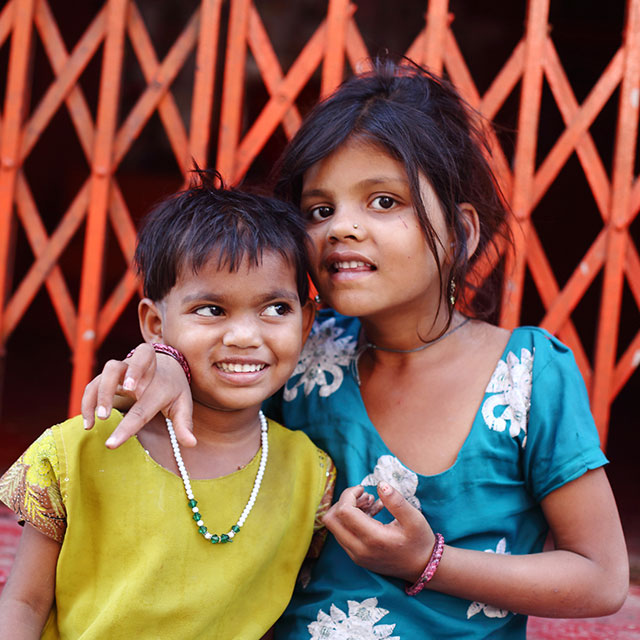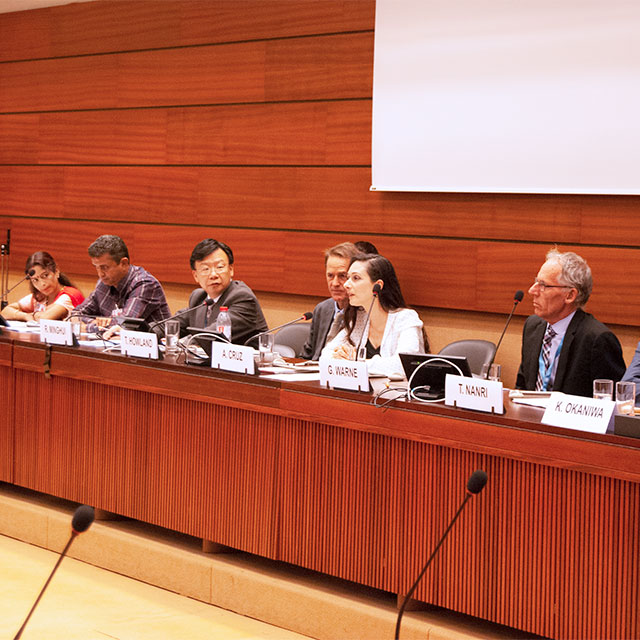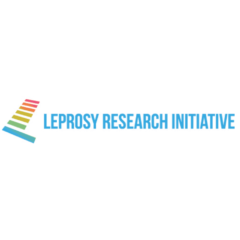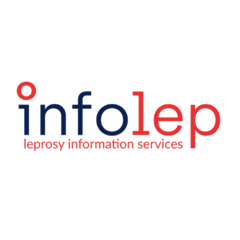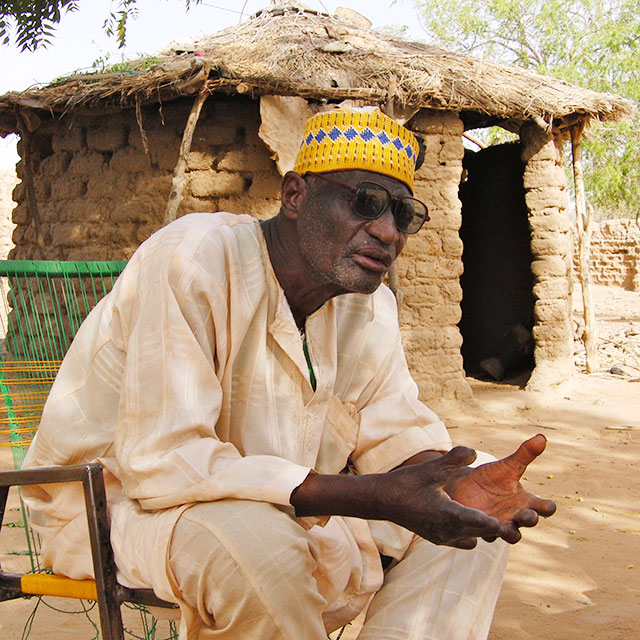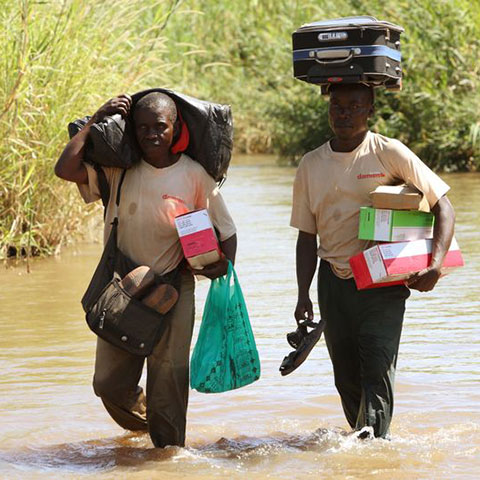What We Do
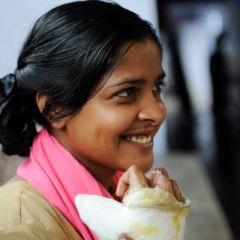
Our work
ILEP’s Member associations are working together for a world free from leprosy.
Zero Transmission. Together we are stopping transmission of leprosy. ILEP researchers strive to identify new tools to interrupt transmission, while practitioners strive to make the best use of what is currently known.
Zero Disabilities. Together we are preventing disability due to leprosy. Through prompt treatment, expertise and the teaching of self-care, we help prevent nerve damage, injury, disfigurement of the face and limbs, and blindness.
Zero Stigma and Discrimination. Together we are promoting the inclusion of people affected by leprosy and their family members by tackling unjust laws and all forms of anti-leprosy prejudice and exclusion.
Strategy
ILEP’s Strategy 2021-2025 was developed through consultation in early 2021 with a wide range of internal and external stakeholders. This was followed by a steady process of determining priorities and the areas in which ILEP would make the greatest impact. The strategy comprises the following key strategic goals that are seen as potential global ‘game-changers’ in regard to some of the current global challenges facing the leprosy world.
-
Development of a global framework and strategy to build and sustain leprosy capacity.
-
Globally consistent leprosy data standards and data collection methodologies, leading to accurate reporting for improved programme planning and monitoring.
-
Readily available services related to mental wellbeing in leprosy.
-
Active engagement by persons affected by leprosy.
-
Innovative approaches through research, proof of concept, and application of game-changing technologies and processes.
The ILEP Federation collectively aims to work towards achievement of these goals through active collaboration, together and with other partners.
Download ILEP strategy 2021-2025Download Strategy at a glance
Achievements
Read ILEP’s Annual Reports from 2024, 2023, and 2022 for information on what ILEP is achieving towards its strategic goals.
Advocacy
ILEP’s approach to advocacy
Complementing ILEP’s work in health, rehabilitation and community development, advocacy has become a critically important focus. Through advocacy, ILEP aims to promote a more accurate understanding of leprosy, to challenge stigmatising attitudes, and to change the attitudes and priorities of institutions and people of influence.
The Sustainable Development Goals, adopted in 2015, provide a foundation for ILEP’s advocacy. UN member states pledged to ‘leave no one behind’ and ‘endeavour to reach the furthest behind first’. Stigma, exclusion, disability and poverty conspire to place individuals and families affected by leprosy the furthest behind in many communities. The explicit inclusion in SDG 3 of a commitment to end the epidemic of neglected tropical diseases, including leprosy, has given further impetus to ILEP’s advocacy towards zero leprosy.
Self-advocacy
People affected by leprosy are often marginalised and demoralised by the disease and society’s response to it. ILEP Members seek to address this by building people’s self-confidence and understanding of their rights and empowering them to press for change. Often the strongest progress is when people self-organise through self-help groups and other forums. Some ILEP Members have been especially active in fostering provincial and national organisations of persons affected by leprosy, some of which demonstrate steadily growing political influence.
Country-level advocacy
Many governments scaled down their leprosy programmes in the mistaken belief that leprosy had been eliminated. Even where there are active national leprosy programmes, they usually focus only on case finding and treatment, and much less (if at all) on the issues of disability and stigma. ILEP Members lobby central and local governments to allocate appropriate funding to leprosy, to build a serious intent towards zero leprosy, and to widen their focus to non-medical issues like socio-economic rehabilitation, disability and discrimination. ILEP Members also seek to sensitise other NGOs and civil society organisations to the realities of leprosy and to form lasting national collaborations.
World Health Organization
WHO classifies leprosy among the group of 20+ Neglected Tropical Diseases. ILEP is in official relations with WHO and is in a position to influence the policy and actions of the Global Leprosy Programme, the WHO NTDs department, and others. In the health and disability ‘space’ ILEP also works in participatory advocacy with the NGO NTD Network (NNN) and the International Disability and Development Consortium (IDDC).
United Nations High Commission for Human Rights
Speaking in June 2019 about leprosy-related stigma, the High Commissioner for Human Rights commented: ‘There is no medical justification for this fear and prejudice: it is a social invention’. Advocacy with the various instruments of the OHCHR responds to the reality that the label ‘leprosy’ is associated with the abuse and violation of the human rights of countless women, men and children – around 5 million of them alive today. ILEP works particularly with:
- The UN Special Rapporteur on the elimination of discrimination against persons affected by leprosy and their family members, supporting her mandate in all practicable ways.
- The CRPD committee (Convention on the Rights of Persons with Disabilities), with generic and country-focused submissions on stigma, discrimination and denial of rights.
- The CEDAW committee (Convention for the Elimination of all forms of Discrimination Against Women) with submissions on human rights abuses experienced by women and girls affected by leprosy.
- The Human Rights Committee, ensuring that human rights abuses related to leprosy are included in the Universal Periodic Review process.
UN Principles and Guidelines
In 2010 the UN General Assembly and the Human Rights Council adopted the Principles and Guidelines for elimination of the discrimination against persons affected by leprosy and their family members. These Principles and Guidelines make national governments responsible to eliminate leprosy-related discrimination. They form an excellent roadmap on how to enforce legally binding human rights that are routinely violated towards persons affected by leprosy and their family members. Many of the Principles and Guidelines mirror the rights enshrined in the Convention on the Rights of Persons with Disabilities (CRPD). The preamble of the CRPD recognises the need to promote and protect the human rights of all persons with disabilities, including those who require more intensive support. ILEP argues that persons with leprosy-related disabilities or disadvantaged by the label ‘leprosy’ are the very ones who need this intensive support.
Regrettably, the Principles and Guidelines are non-mandatory and have largely been ignored, so that at state and community level, the same human rights abuses persist. Nevertheless, ILEP routinely refers to the Principles and Guidelines in submissions to the various human rights instruments of the OHCHR. Through this, we urge governments to implement the Principles and Guidelines as a significant contribution to enabling persons affected by leprosy to live with dignity.
Statements, submissions and briefings
Since 2019 ILEP has made regular submissions or briefings, particularly to the various UN human rights bodies. See here for details of ILEP advocacy statements, submissions and briefings.
Technical collaboration
ILEP Member associations recognise that through collaboration, co-operation and harnessing collective strength we will have a far greater impact in the fight against leprosy. Technical collaboration sometimes takes the form of co-financing significant technical initiatives with impact for the leprosy world.
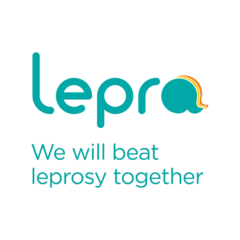
Leprosy Review
Leprosy Review is the leading academic journal on leprosy, with original papers on all aspects of the disease. It is produced every quarter by ILEP Member Lepra. Topics covered include research into the medical, physical and social aspects of leprosy and information relevant to leprosy control. The editor is Paul Saunderson, member of the ILEP Technical Commission. Publication is funded by grants from Lepra and other Members of ILEP.
Leprosy Research Initiative
The Leprosy Research Initiative (LRI) is a combined venture of ILEP members and closely associated partners. It was launched in 2013 to establish a joint fund to support leprosy research and mechanisms to access external funding. The joint fund is used for research that is exclusively or strongly related to leprosy. Additional resources are actively sought for research in the field of general disabilities and for research aimed at different diseases (e.g. other NTDs, TB and diabetes) in combination with leprosy. Since 2014, the LRI has supported more than 65 projects in 26 countries. The LRI is hosted by NLR International and includes six ILEP Members among its primary or co-funding partners.
Infolep
Infolep is the international knowledge center for information resources on leprosy. The online portal offers easy access to over 30,000 publications including many with a link to the free full text. Infolep provides scientists, professionals and others with knowledge and information to support their daily work. It also offers library services such as access to subscription-only articles, assistance with literature searches and a monthly e-newsletter featuring the latest publications on leprosy. Infolep is hosted by NLR International and co-funded by nine ILEP Members.
Research
Although effective leprosy treatment has been available since the 1980s, it has not stopped transmission of the disease. Reported new case numbers have barely reduced in the past decade. Recent reviews by the Leprosy Research Initiative and the Global Partnership for Zero Leprosy (GPZL) have demonstrated that the tools and knowledge currently available are not enough to achieve our shared goals of zero transmission, zero disability and zero stigma and discrimination. The WHO Leprosy Guidelines (2018) demonstrated that even where there are research findings, they are often not of the quality needed to guide policy, and there are major gaps.
Better tools and innovative techniques are needed, and they require investment in high-quality research across the whole leprosy agenda.
Identifying research priorities
In 2018, the Global Partnership for Zero Leprosy mobilised more than 140 people from 20 countries to develop detailed research priorities toward zero leprosy. Eight research areas were selected: diagnostics, digital health, disability, epidemiological modelling and socioeconomic research, operational research, post exposure prophylaxis, stigma, and vaccines. Scientists and researchers from ILEP Members associations were prominent in the leadership and composition of the subgroups that worked in each area.
The result is a research agenda with wide global consensus. The reports of the subgroups that worked in the eight research areas are in Leprosy Review (September 2019). Because leprosy is a complex condition with medical, epidemiological, biological, socio-economic and cultural aspects, research projects need to integrate multiple disciplines and collaborate across traditionally separated fields in order to achieve breakthroughs. A commentary in the same edition of Leprosy Review highlights and offers observations on the reports, and suggests that more emphasis may also be needed on basic, as opposed to applied, research in areas such as microbiology, immunology, molecular biology and neuroscience.
Research investment
Most ILEP Member associations invest in research. This may be in the form of dedicated research facilities, identified long-term research projects, or operational research annexed to field-based programmes. The authoritative G-Finder reports provide up-to-date analysis of how research expenditure is allocated across neglected diseases, including leprosy.
In 2013 a group of ILEP Members decided to combine their research budgets to support important research projects and leverage external funding. The Leprosy Research Initiative is a combined venture of ILEP Members and closely associated partners which is now investing more than $1 million per year in leprosy research. LRI has also enabled the ongoing engagement of a large global network of researchers and scientists with an interest in leprosy.
World Leprosy Day
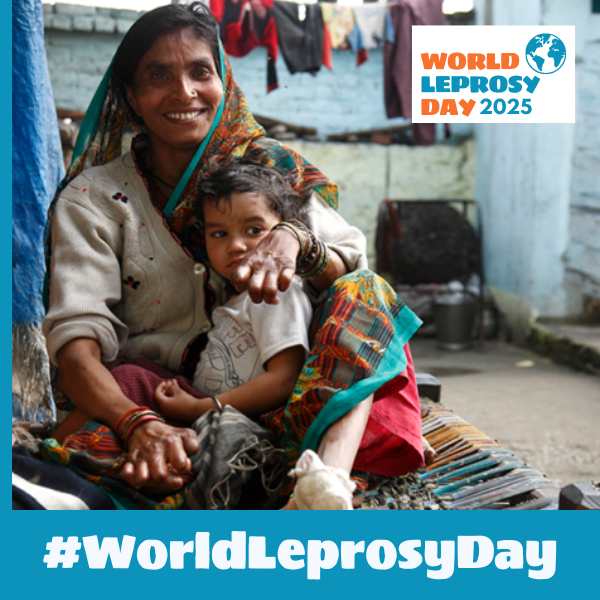
World Leprosy Day, which occurs on the last Sunday of January each year, aims to increase public awareness of leprosy and the complications surrounding it. In India, World Leprosy Day is celebrated on 30th January to coincide with the anniversary of the death of Mahatma Gandhi, who passed away on that day in 1948. Gandhi worked tirelessly to help those affected with the disease.
World Leprosy Day is observed in most leprosy-endemic countries and in many of the countries in which ILEP members are raising resources for the disease. The way it is observed differs markedly from country to country. There may be media campaigns, marches by people affected by leprosy, official meetings often in conjunction with government health departments, donations to persons in need, and raising of support for leprosy programmes.
ILEP Members have for many years undertaken a major leprosy information and awareness campaign during the weeks leading up to World Leprosy Day. ILEP’s World Leprosy Day 2025 campaign Unite, Act, Eliminate Leprosy: A global imperative aimed to inspire global commitment and immediate action to eliminate leprosy. ILEP’s World Leprosy Day 2024 campaign Beat Leprosy aimed to raise awareness of leprosy, highlight the challenges faced by persons affected by leprosy, and inspire action to end leprosy. The World Leprosy Day 2023 campaign Act Now: End Leprosy aimed to empower countries to end leprosy and inspire real commitment. The campaign called on governments, decision-makers, donors and the global health community to prioritize leprosy elimination efforts to realize zero leprosy goals. The World Leprosy Day 2022 campaign United for Dignity honoured the lived experiences of people who have experienced leprosy, by sharing their stories and advocating for mental wellbeing and the right to a dignified life free from disease-related stigma. The World Leprosy Day 2021 campaign was based around the simple imperative to ‘beat leprosy’, with sub-themes confirming that leprosy is curable and calling for an end to leprosy discrimination. The World Leprosy Day 2020 campaign linked stigma and discrimination in leprosy to the rights guaranteed to all human beings under the Universal Declaration of Human Rights.
